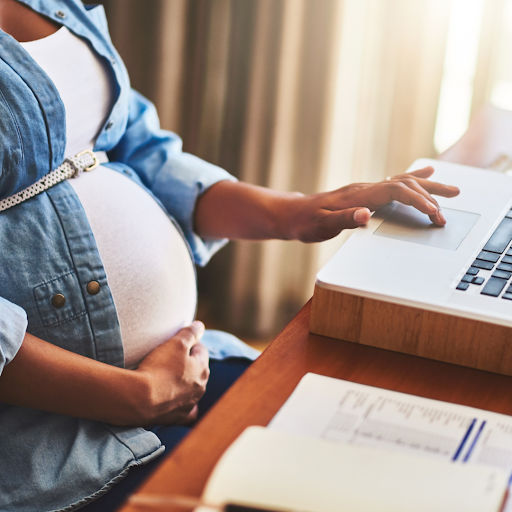Introduction
Understanding your maternity leave entitlements is crucial to ensure you receive the necessary support during this critical and joyous life event of welcoming a new child into the world. The maternity leave laws in Singapore aim to offer support and safeguards for working mothers. This guide provides a comprehensive explanation of maternity leave eligibility, benefits, and legal safeguards, giving you the knowledge to make informed decisions.
Overview of Maternity Leave
This text provides a clear explanation of maternity leave, outlining how it allows expectant mothers to take time off work to prepare for childbirth and recover afterward. In Singapore, the duration of maternity leave can vary between 12 and 16 weeks, depending on factors such as your child’s citizenship and your employment status. These leave provisions are essential for allowing mothers to prioritize their well-being and the well-being of their newborns, without worrying about job security or financial stability.
Maternity Leave Eligibility
The eligibility criteria for maternity leave in Singapore are determined by the Employment Act and other applicable provisions. The Employment Act provides employees with 12 weeks of paid maternity leave if they have been working for their current employer for at least three months without interruption. This entitlement is applicable regardless of the child’s citizenship status. Nevertheless, there are certain categories of employees who are not eligible for this coverage, including high-earning executives, seafarers, domestic workers, and civil servants.
This policy provides an extended maternity leave of 16 weeks for mothers whose children are Singapore citizens. This extended leave is provided through the Government-Paid Maternity Leave (GPML) scheme. In order to be eligible, the mother must have maintained a consistent employment record for a minimum of three months leading up to the birth of the child. Self-employed mothers who meet the specified criteria may also qualify for GPML benefits.
Maternity Leave Payment Structure
It is essential to have a clear understanding of how maternity leave payments are structured. The Employment Act mandates that employers must provide salary coverage for the initial eight weeks of maternity leave for employees. The remaining four weeks may be unpaid, depending on the terms of the employment contract. Nevertheless, numerous employers choose to provide coverage for the entire 12-week period.
This scheme provides reimbursement to employers for the final eight weeks of maternity leave, or the entire 16 weeks in the case of a third or subsequent child, for those who qualify under the GPML scheme. This system guarantees a fair distribution of financial responsibility between employers and the government, providing mothers with the assurance of taking their full leave without any financial uncertainties.
Flexibility in Maternity Leave
The flexibility of Singapore’s maternity leave policies is a significant advantage. Maternity leave usually starts four weeks before the anticipated delivery date and lasts for either 12 or 16 weeks after giving birth. Employees have the option to discuss with their employer the possibility of spreading their leave over the first 12 months after the birth of their child. This allows for a more personalized approach that takes into account both work and family obligations.
Shared Parental Leave
Singapore’s maternity leave framework also includes provisions for shared parental leave. Mothers have the option to transfer up to four weeks of their government-paid maternity leave to their spouse, as long as both parties meet the eligibility criteria. This provision encourages fathers to play a more active role in raising their children, creating a more equitable and harmonious family dynamic.
Provisions for Adoption Leave
Adoptive mothers in Singapore are also eligible for leave benefits. This policy allows adoptive mothers to take up to 12 weeks of adoption leave if their adopted child is under 12 months old. However, they must have been employed for at least three months before the adoption. This provision guarantees that adoptive mothers are given sufficient time to form a strong bond with their child and adjust to the new dynamics of their family.
Understanding Legal Protections and Obligations
Singapore’s maternity leave laws offer strong safeguards for expectant and new mothers. Employees are protected during maternity leave and cannot be dismissed without just cause, nor can they be retrenched. Additionally, it is important to note that employees are not allowed to have external employment while on maternity leave. Violating this policy may lead to termination and the forfeiture of benefits. Employers are not allowed to mandate employees to resume work within the initial four weeks following childbirth.
Resolving Maternity Leave Disputes
If there are any disagreements concerning maternity leave, it is important to first communicate directly with your employer. In case the problem persists, you have the option to take the matter to the Tripartite Alliance for Dispute Management (TADM). They provide mediation services to help resolve employment-related disputes and protect the rights of employees.
In conclusion
Singapore’s maternity leave laws provide extensive support for working mothers. With a solid understanding of your rights and entitlements, you can approach the maternity leave process with confidence and peace of mind. The legal framework is crafted to safeguard your welfare and allow you to wholeheartedly focus on your family during this crucial period, free from the burden of financial or employment worries.




